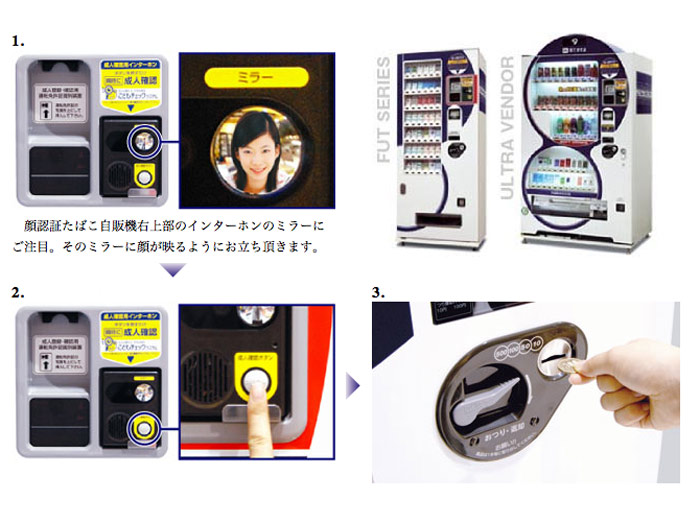Are you wrinkly enough to buy cigarettes?
Face recognition machines to stop under-age smoking

Everyone knows that smoking causes the skin to age unnaturally and lines to appear around the eyes prematurely, but who could have guessed that smokers would one day be thankful for their tobacco-induced wrinkles?
The bizarre state of affairs comes from a new Japanese cigarette-vending machine that uses face recognition to determine if a customer is over the legal age for buying tobacco, which is 20 in Japan.
If the face fits
Fujitaka's 'Child Check System' [Japanese link] will start appearing in some of Japan's half million or so machines from this July - that's around the same time as the taspo RFID age-verification system we've seen previously.
Eschewing pre-registered RFID cards, the Fujitaka system works by analysing a digital photograph taken by a camera embedded in each machine. A database of 100,000 faces allows it to look for the lack of lines and skin tone that suggest a minor is trying to buy cigarettes.
Baby faces considered
There are, of course, plenty of people who look young well into their 20s and beyond. These folk can either insert a driving licence for age verification or register their mugs with the vending machine owner.
Get daily insight, inspiration and deals in your inbox
Sign up for breaking news, reviews, opinion, top tech deals, and more.
Regardless of the smart technology behind the Child Check System, its chances of success look slim.
One young-looking smoker buying a pack of Seven Star cigarettes from a machine in Tokyo told us, "What's the point? I'll just go into a shop anyway. The staff there are far too busy to even care what they are selling."
Who needs it?
As if to underline the problem, even though it hasn't begun yet the alternative taspo system has had a miserable pre-registration rate and suffered criticism from privacy advocates.
Moreover, previous attempts at 'face recognition' using video cameras embedded in cigarette machines and linked to someone sitting in a room nearby (really) have been predictable flops.
Any still to be found on the streets of Japan tend to have their cameras obscured by dark burn marks - made by cigarettes, of course.
J Mark Lytle was an International Editor for TechRadar, based out of Tokyo, who now works as a Script Editor, Consultant at NHK, the Japan Broadcasting Corporation. Writer, multi-platform journalist, all-round editorial and PR consultant with many years' experience as a professional writer, their bylines include CNN, Snap Media and IDG.